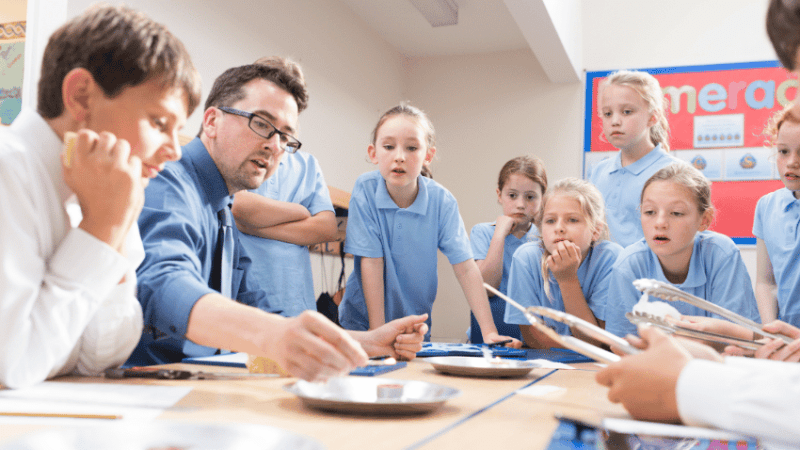Dealing with Students Deliberately Misbehaving when you’re being Observed

Some things never change, says Adam Riches – and one of them is the tendency for students to act up when it’s most important that they don’t…

- by Adam Riches

In showbusiness, they say you should never work with children or animals; the somewhat sporadic and unpredictable nature of both (even when trained) means that performances can easily be ruined by impromptu, off-script behaviour.
It’s often noted that teaching is a lot like being on stage – and that’s especially true when you are being observed.
Unfortunately, as teachers we can’t really say that we don’t/won’t work with children… so when there’s a clipboard present, and you’re sharing the spotlight with 30 teenagers, you do sometimes find yourself praying that they stay normal and don’t go completely ad-lib on you.
Classic tactics
I remember when I was at school – and how, on the rare occasion that one of my teachers was observed, my classmates and I would proverbially – literally in some cases – rub our hands together: this was payback time!
There was something hugely empowering about the dynamic shift when we realised that Sir himself was being assessed.
Of course, we had no concept of what was really happening, and after a few short minutes we’d usually have forgotten about the extra adult in the room… but until then, watching the beads of sweat build on Sir’s brow as we all decided to be elective mutes was priceless.
In many ways, I hate my 15-year-old self for being such a pain. At the time, it was comedy gold.
It’s the tactics we used that make me nervous to this day. I know all of the tricks that cause discomfort during an observation.
I wouldn’t go so far as to say I was founder of every teacher torture technique we often see, but I was certainly an early pioneer of some of the approaches; a lot of which were based around our teachers not really knowing us that well.
The old switcheroo with the seats, changing of your voice or refusal to answer to your preferred shortened name were all classic tactics.
I mean, it’s almost comical to look back on how not funny we were and how hilarious we found ourselves… especially with an observer in the room.
Plus ça change…
Now the shoe is on the other foot, I’m on the defensive. My playbook is a bit out of date, but I still know the signs of a stitch-up when I see one.
Sure, there are a few unpredictable students who can’t be read, but I normally get it pretty right. The best thing is when I thwart a plan and get the wry smile of respect; I love that.
It’s fair to say that things are different these days from when I was at school.
Kids don’t seem as keen as we used to be to see their teachers slip up; and other adults coming into the room during a lesson is much less of a novelty for them.
But even so, there will always be those who see an observer as a chance to steal the show.
As with most things in life, I think that you just need to be yourself.
The blazer-clad sharks only sense blood when they detect fear – and as long as a school has the culture around observations right, this factor should be relatively neutralised.
Indeed, I’ve noticed that the marking of student territory is quite often directed at the observer, rather than the teacher.
A hostile sneer and, “Who’s that then?!” might rattle a visitor to your classroom – but it can be a welcome break from the crosshairs, and even make you feel weirdly supported by your class when the chips are down.
Children will always be unpredictable, and you can rely on them to play up when you least want them to… on the plus side, though, at least we don’t have animals in the classroom; that would be a bit much for me.
Adam Riches is a lead teacher in English, ITT Co-ordinator and SLE. Follow him on Twitter at @teachmrriches.









